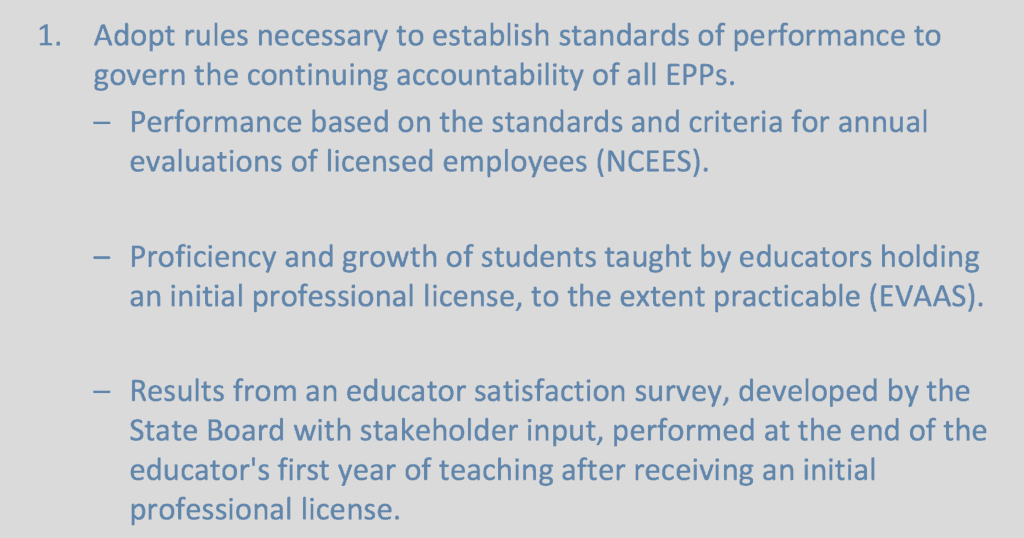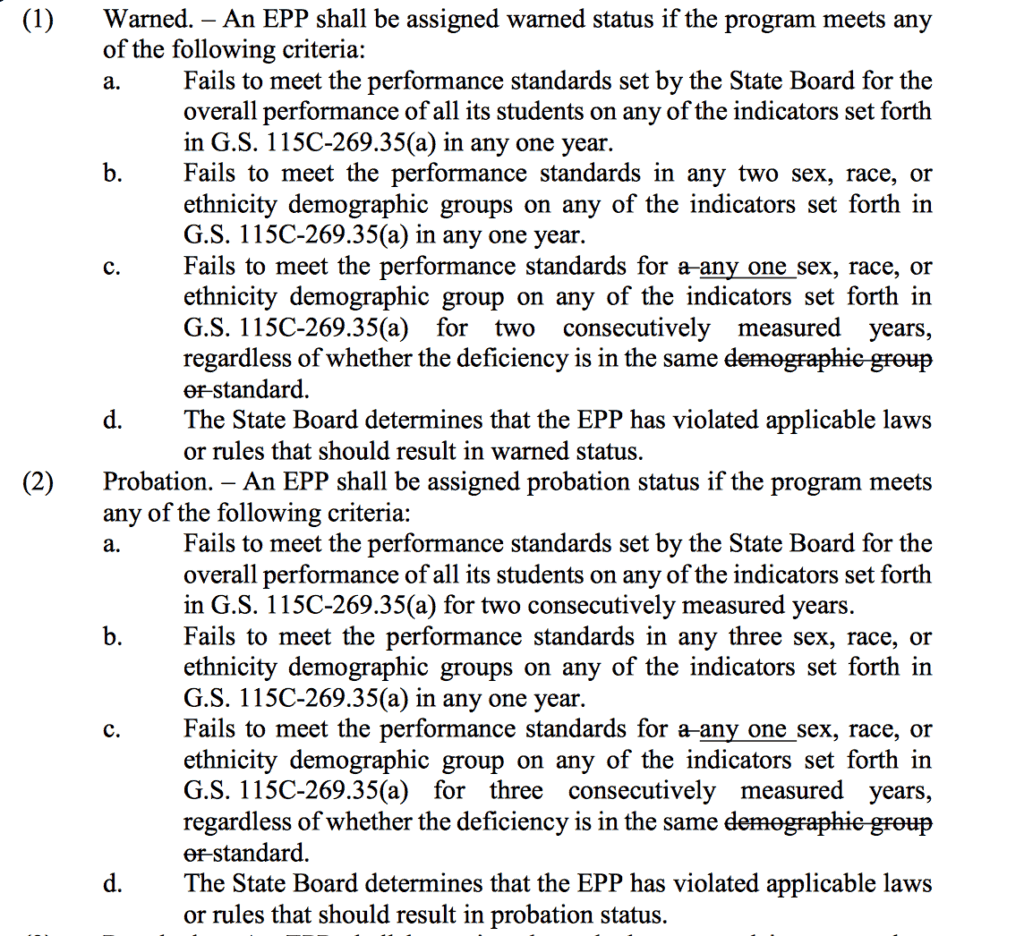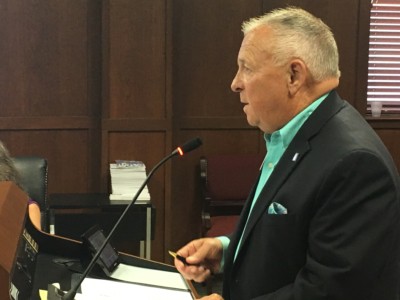

The Professional Educator Preparation and Standards Commission (PEPSC) is hard at work on an accountability model for educator preparation programs (EPPs), and recently passed legislation may give commission members the flexibility they need to make sure such programs don’t face sanctions education leaders consider unfair.
That legislation, House Bill 107, does two things. First, it lays out the three criteria that must be used to judge the performance of EPPs:


The problem faced by PEPSC is that SB 599, which created the commission, also establishes the sanctions EPPs should face if their scores for these performance measures fall short.


As we reported previously, the law as written essentially says that if EPPs fail on any one of the required accountability standards, they would be sanctioned. If EPPs repeatedly fail, this could lead to probation and eventually revocation of state authorization for the EPPs to produce teachers. All the criteria are weighted equally, so the end result is that an EPP could do great on two criteria and less great on a third and still face sanctions.
The law also requires that the performance measures lay out performance by race, ethnicity, and gender. All the groups have to at least meet the performance threshold.
Since subgroups are often underrepresented in educator preparation programs, their performance could have an outsized impact on the accountability such programs are held to. A large program that teaches and graduates many qualified candidates could get sanctions if a disproportionately small subgroup of students doesn’t meet the performance threshold.
Fortunately, House Bill 107 does one other thing that could help resolve this issue. It directs the State Board of Education to come up with “a formulaic, performance-based weighted model for the purposes of comparing the annual report card information between each educator preparation program…”
This could allow the state to make sure some criteria carries more weight than others when evaluating EPPs.
Andrew Sioberg, director of educator preparation for DPI, said the way he reads the law, if PESPC recommends and the State Board of Education approves a weighted model, it could replace the model mandated in the law.
“I’m interpreting that as they’ve set the basic criteria for accountability, but they’ve also given room for this group to think critically,” he said Thursday.
Community colleges launch marketing campaign
The Community College System has officially launched its marketing plan to inform students about the benefit of community colleges. It includes a website, radio and video spots, billboards, and more.
Community College System President Peter Hans said at a previous State Board meeting that the system raised $2.5 million for these efforts, and that the marketing plan is aimed at a young audience.


“It will also be a way for us to tell our story in a little bit more detail,” Hans said at a previous meeting. “For those who are interested and for students to see themselves in those careers.”


Chair of State Board of Community Colleges sets the tone
The new chair of the State Board of Community Colleges used the issues session at Thursday’s meeting of the State Board to lay out his expectations for the board moving forward.
Titled “Chairman’s Words to Live By,” the presentation set the tone for the board under new chair Breeden Blackwell.
Blackwell was named the new board chair in July. He is from Fayetteville, where he retired as a school principal. He’s been on the State Board since 2015. He has previously served as a trustee of Fayetteville Technical Community College, and also had tenures on the Fayetteville City Council and the Cumberland County Board of Commissioners.
His presentation included practical matters — such as board members being on time and discussion staying civil — as well as more aspirational suggestions. For instance, Blackwell told board members they should try to visit the state’s community colleges whenever they can.


He noted a visit he made to Bladen Community College where he learned a lot from the staff.
“You learn a lot more listening than talking,” he said.
Blackwell also told the board members that he didn’t care about their political persuasion. The only thing that mattered to him was that the students come first.
“I do care that we’re an effective board,” he said. “I do care that we never put the students second.”
New community college presidents
The State Board of Community Colleges approved last week new community college presidents for Nash Community College in Rocky Mount, Guilford Technical Community College, and Roanoke-Chowan Community College in Ahoskie.
Lew Hunnicutt will be leading Nash Community College. He will succeed Bill Carver, who is closing out his term in October. Hunnicutt is presently the assistant provost and campus director for the University of Georgia.
Anthony Clarke is taking over Guilford Technical Community College. Right now, he is president of Southeastern Community College in Whiteville. He starts his new role November 1.
And Audre Levy will be serving immediately as interim president at Roanoke-Chowan Community College, leaving her most recent post as president of Lone Star College-CyFair in Texas.


